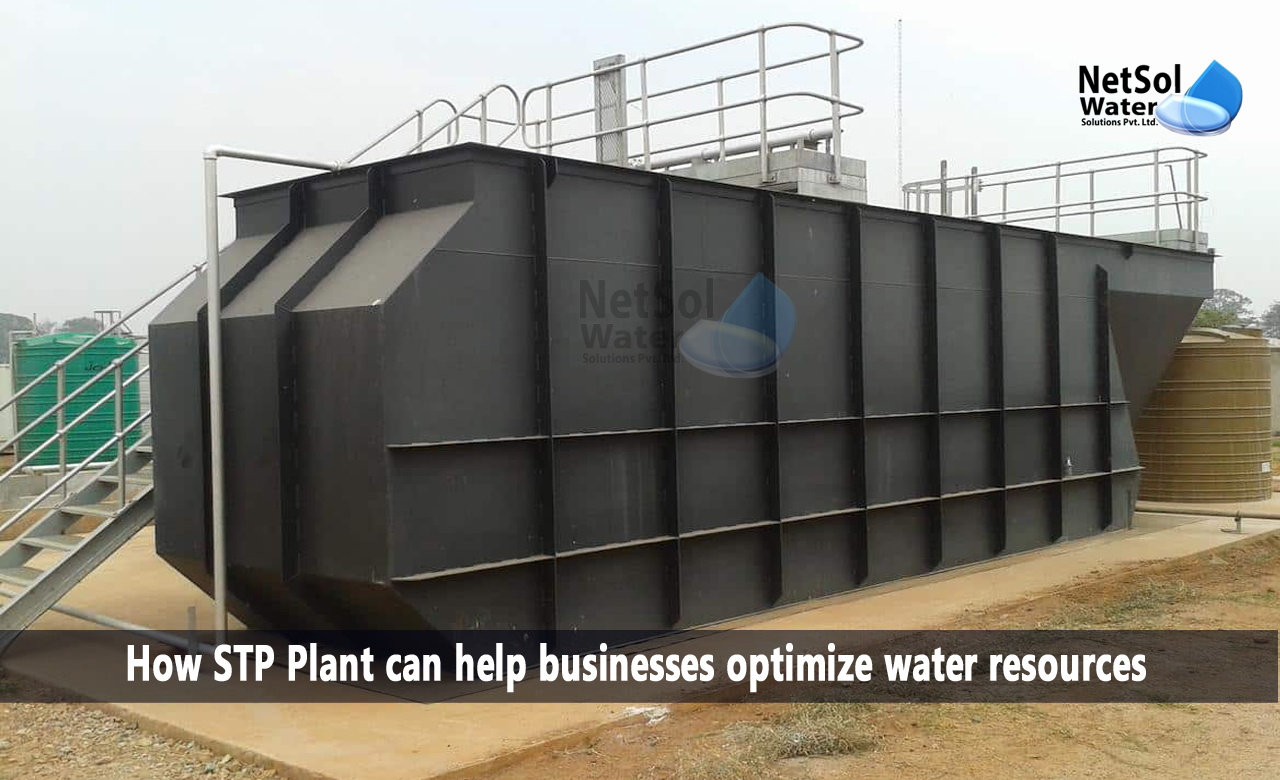How STP Plant can help businesses optimize water resources?
Water is a precious resource, and as the global demand for it continues to rise, industries must explore innovative ways to optimize its use. In the manufacturing sector, where water plays a critical role in various processes, the integration of sewage treatment plants offers a compelling solution for unlocking water efficiency.
In this blog, we will delve into the benefits of sewage treatment plants in manufacturing and how they can help businesses optimize water resources, reduce consumption, and improve overall operational efficiency.
The Water Challenge in Manufacturing
Manufacturing processes rely heavily on water for cooling, cleaning, processing, and other essential functions. However, the high demand for water can strain local water supplies, especially in water-scarce regions. Additionally, inefficient water management practices and the discharge of untreated wastewater contribute to pollution and environmental degradation. To address these challenges, manufacturers need to adopt sustainable water management strategies, and sewage treatment plants offer a transformative approach.
The Role of Sewage Treatment Plants in Manufacturing
Integrating sewage treatment plants into manufacturing facilities can lead to significant improvements in water management. Here are some ways in which sewage treatment plants optimize water resources in the manufacturing sector:
- Water Reuse and Recycling: Sewage treatment plants can effectively treat and purify wastewater, making it suitable for reuse in various manufacturing processes. By implementing closed-loop systems, businesses can minimize their reliance on freshwater sources, reduce water consumption, and conserve valuable resources.
- On-Site Treatment and Discharge Reduction: Traditional wastewater discharge methods can strain local water bodies and ecosystems. Sewage treatment plants allow manufacturers to treat and mitigate the impact of their wastewater on the environment before discharging it, ensuring compliance with regulations and reducing the ecological footprint.
- Process Optimization: The availability of treated wastewater from sewage treatment plants enables manufacturers to optimize their processes. By utilizing reclaimed water for non-potable purposes, such as cleaning, landscaping, or equipment cooling, businesses can preserve high-quality freshwater for essential uses, thereby enhancing operational efficiency.
- Energy Efficiency: Modern sewage treatment plants employ advanced technologies that not only treat wastewater but also optimize energy consumption. By integrating energy-efficient processes like anaerobic digestion or utilizing biogas produced during treatment, manufacturers can reduce their energy costs and contribute to a greener and more sustainable manufacturing process.
- Environmental Stewardship and Compliance: Implementing sewage treatment plants showcases a commitment to environmental stewardship and compliance with water quality standards. It helps businesses operate responsibly, protect local ecosystems, and preserve water resources for future generations.
Benefits for Manufacturers and the Environment
The integration of sewage treatment plants into manufacturing processes offers numerous benefits, including:
- Water Conservation: By reusing and recycling treated wastewater, manufacturers can significantly reduce their freshwater consumption. This not only conserves a vital resource but also reduces the strain on local water supplies and ecosystems.
- Cost Savings: Implementing sewage treatment plants can lead to long-term cost savings. By reducing water consumption and optimizing processes, businesses can lower their water bills, save on wastewater disposal costs, and potentially generate revenue from the recovery of valuable resources like biogas or nutrient-rich by-products.
- Enhanced Sustainability Performance: Sewage treatment plants contribute to a company's sustainability goals and environmental performance. They demonstrate a commitment to responsible water management, circular economy principles, and resource efficiency, thereby improving the company's reputation and attracting environmentally conscious customers and stakeholders.
- Climate Change Mitigation: Efficient water management through sewage treatment plants indirectly contributes to climate change mitigation efforts. By reducing water consumption, businesses reduce the energy required for water pumping, treatment, and heating, leading to lower carbon emissions.
- Resilience and Risk Reduction: The integration of sewage treatment plants enhances a business's resilience by reducing its dependence on external water sources and mitigating the risk of water scarcity or disruptions in supply.
Conclusion
In the face of increasing water scarcity and environmental concerns, optimizing water resources is crucial for sustainable manufacturing practices. The integration of sewage treatment plants offers a powerful solution, enabling businesses to efficiently manage their water consumption, reduce pollution, and enhance operational efficiency. By embracing these technologies, manufacturers can not only minimize their environmental impact but also reap economic benefits, ensure compliance with regulations, and strengthen their position as leaders in sustainable and responsible business practices. The time has come for businesses to unlock the potential of sewage treatment plants and drive positive change for water conservation in the manufacturing industry.
Netsol Water is Greater Noida-based leading water & wastewater treatment plant manufacturer. We are industry's most demanding company based on client review and work quality. We are known as best commercial RO plant manufacturers, industrial RO plant manufacturer, sewage treatment plant manufacturer, Water Softener Plant Manufacturers and effluent treatment plant manufacturers. Apart from this 24x7 customer support is our USP. Call on +91-9650608473, or write us at enquiry@netsolwater.com for any support, inquiry or product-purchase related query.



